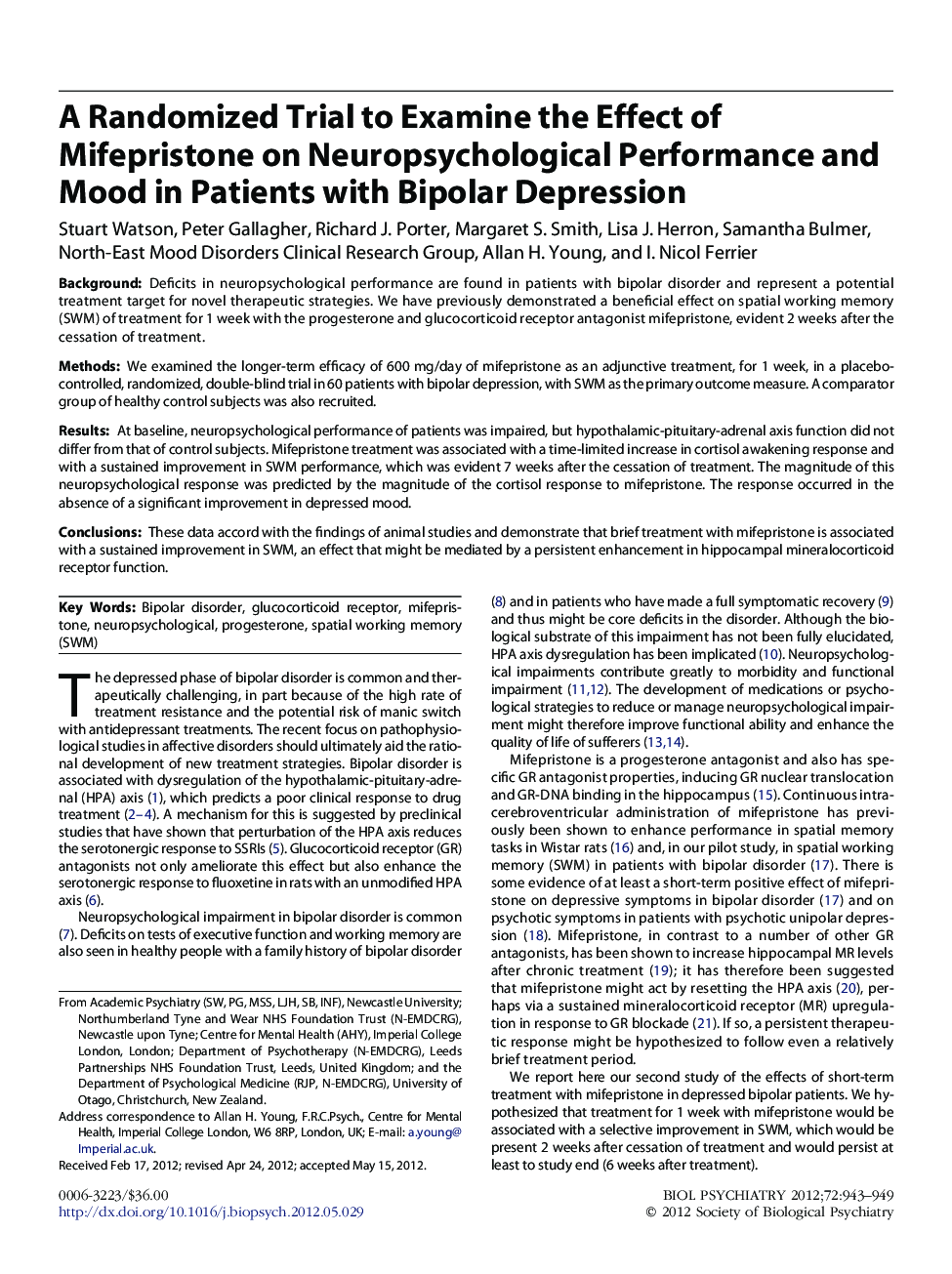| Article ID | Journal | Published Year | Pages | File Type |
|---|---|---|---|---|
| 6227443 | Biological Psychiatry | 2012 | 7 Pages |
BackgroundDeficits in neuropsychological performance are found in patients with bipolar disorder and represent a potential treatment target for novel therapeutic strategies. We have previously demonstrated a beneficial effect on spatial working memory (SWM) of treatment for 1 week with the progesterone and glucocorticoid receptor antagonist mifepristone, evident 2 weeks after the cessation of treatment.MethodsWe examined the longer-term efficacy of 600 mg/day of mifepristone as an adjunctive treatment, for 1 week, in a placebo-controlled, randomized, double-blind trial in 60 patients with bipolar depression, with SWM as the primary outcome measure. A comparator group of healthy control subjects was also recruited.ResultsAt baseline, neuropsychological performance of patients was impaired, but hypothalamic-pituitary-adrenal axis function did not differ from that of control subjects. Mifepristone treatment was associated with a time-limited increase in cortisol awakening response and with a sustained improvement in SWM performance, which was evident 7 weeks after the cessation of treatment. The magnitude of this neuropsychological response was predicted by the magnitude of the cortisol response to mifepristone. The response occurred in the absence of a significant improvement in depressed mood.ConclusionsThese data accord with the findings of animal studies and demonstrate that brief treatment with mifepristone is associated with a sustained improvement in SWM, an effect that might be mediated by a persistent enhancement in hippocampal mineralocorticoid receptor function.
